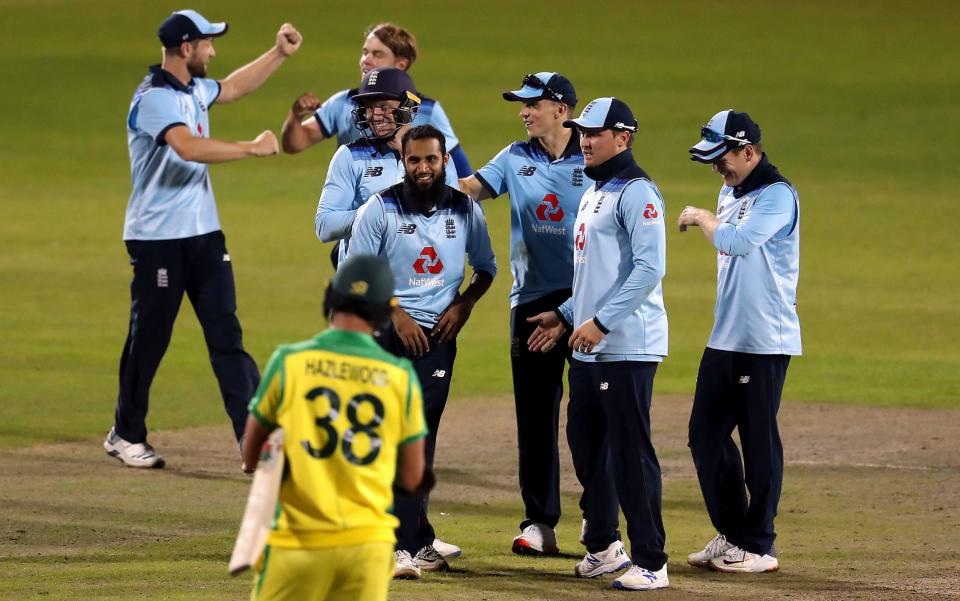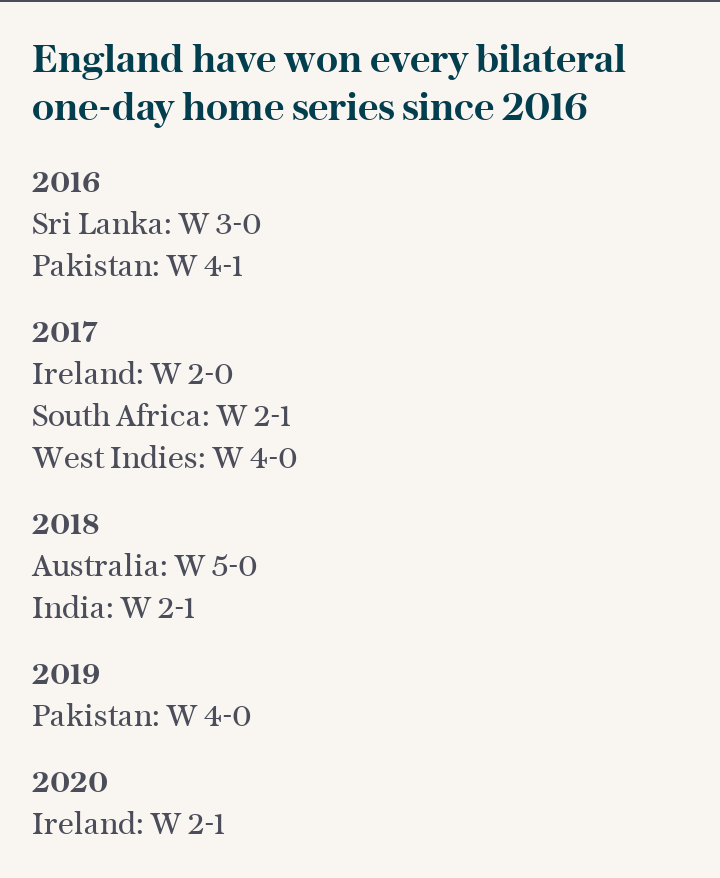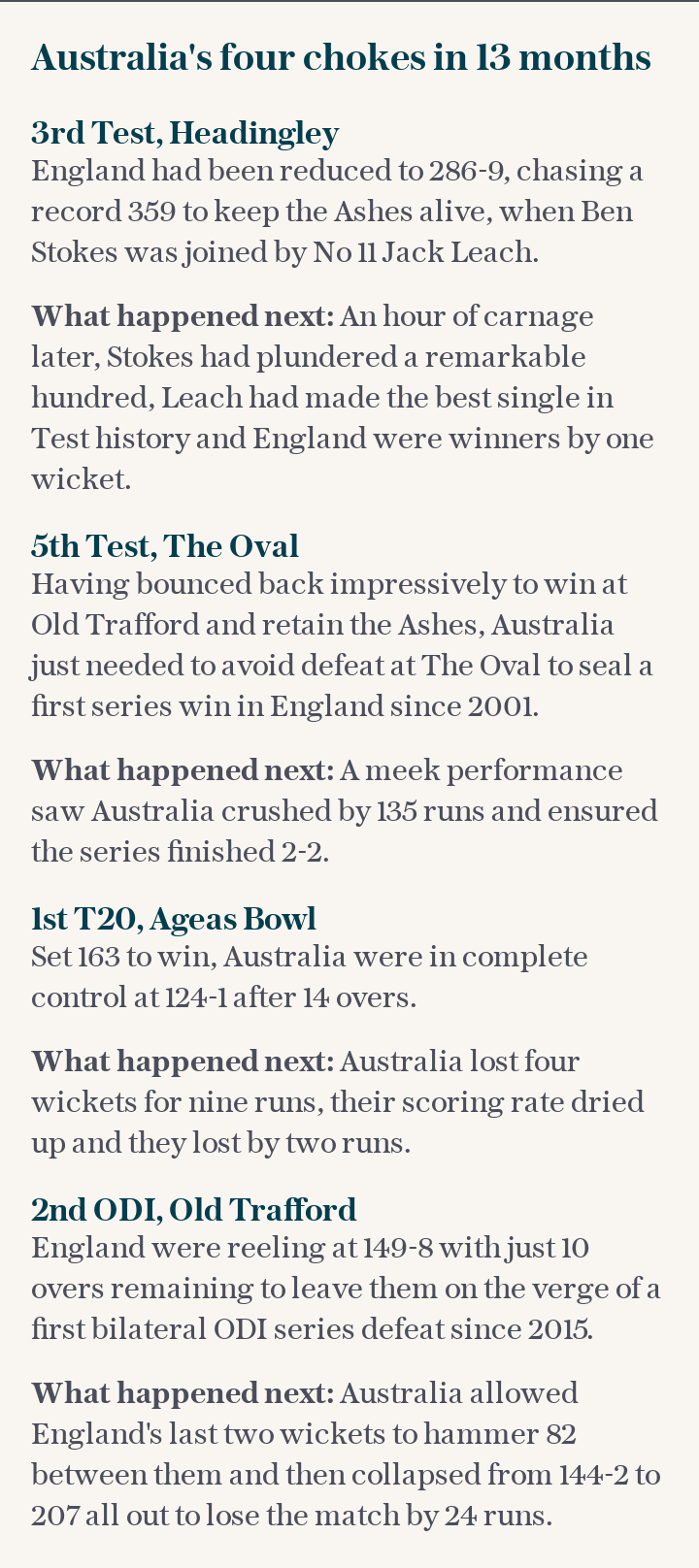England aim to end strangest of summers on a high in fitting climax against their biggest foe

It will not be so entertaining as the World Cup final last year - and no cricket match, perhaps no sporting encounter, will ever have such a prolonged climax. But the third and deciding one-day international between England and Australia could be almost as much fun as last year’s World Cup semi-finals.
In any event the quasi-final at Old Trafford will make a fine end to the international schedule in a summer that might never have been, before cricket makes way for the Indian Premier League’s various qualities, not all questionable, which will dominate the autumn. And next week will see the first-ever first-class county final, between Essex and Somerset, to be held at Lord’s.
One of last year’s semi-finals was between England and Australia at Edgbaston, where on a fast, true pitch England swept Australia’s cricketers aside as if they were Nullarbor flies, Steve Smith alone standing in their way with his 85. The second semi, between India and New Zealand, was at Old Trafford, wherein some pointers lie for this climax of England’s international summer.
The third and last ODI, between the current and previous World Cup holders, is going to be staged on a fresh pitch. It is four strips away from the one on which both England and Australia have struggled to score whenever the bowling has been straight and of “a heavy length” so the batsman, whether on front or back foot, cannot throw his hands at the ball.
Strange concoctions have been throw up by 22 yards of Mancunian turf this summer and last. If the bowling has been wayward, the pitches have yielded huge totals, like England’s 400 against Afghanistan in the World Cup. If the bowling has been accurate and “heavy”, any decent total has been hard to chase.
First-innings totals of 294 and 231 in the first two internationals proved more than adequate. Even though the winning margins were only approximately 20 runs, the team chasing the target did not truly come close. It was the same in the World Cup semi-final at Old Trafford: New Zealand scraped together only 239, yet the target was too much for India’s batsmen against their expert seamers, by 19 runs.

So it seems that, whatever the pitch on Old Trafford’s square, the toss is going to be highly influential, bequeathing as it will the right to bat first in broad daylight - cloudless sunshine predicted - instead of batting at twilight, before the floodlights take full effect, on a pitch that is tiring and wants to go to bed. However, on a relatively fresh pitch, the game is less weighted towards the side batting first.
England, having come back from 1-0 down, have three Australian weaknesses to exploit: their middle-order batting or the lack thereof, their death bowling which is not so adept as England’s in taking pace off the ball (both Currans, Sam and Tom, did a fine job on Sunday), and possibly mental scarring after Australia’s batting collapse in the third T20 was followed by Sunday’s.
Smith’s return would go a long way to rectifying any Australian defects. Their head coach Justin Langer has recounted how it happened (when there is no way in lockdown of any media monitoring what goes on at net practice). At the end of a characteristically long session, Smith ducked into a short ball that failed to rise off one of the increasingly worn net pitches and was hit on the side of his helmet last Thursday. But now, after all the new concussion protocols, Langer says that Smith “has ticked every box”.

Smith at number three, instead of Marcus Stoinis who was blown aside by Jofra Archer, would invigorate Australia’s batting, whether or not Archer disposes of David Warner for the fifth time out of five. Smith would then be followed by his like-for-like replacement, Marnus Labuschagne, who becomes more formidable with every innings, and together they would minimise the likelihood of Australia’s tail - made up of specialist bowlers - having to bat at all.
“We are wary of the impact Steve Smith could have,” Chris Woakes said. It was he and Archer who ran through Australia’s Smith-less batting at the tipping point on Sunday, when Eoin Morgan sounded the call for game-changers and match-winners. Woakes has not swung the new white balls at Old Trafford but when it mattered most he was quick and straight.
“We know he (Smith) is a world-class player and we've been on the receiving end of his performances a few times in the past. We know he can affect games, but at the same time it can be tricky coming in having not much cricket under your belt and having to perform from ball one in a decider. We'll prepare for him to play and if he does, we have our plans for him.”

